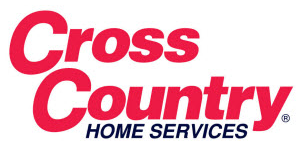Cross Country Home Services (CCHS), a premier home warranty, repair and maintenance services company, has been supporting homeowners for 35 years. CCHS’ contact centers in Florida and South Carolina provide customer support 24/7/365 and the company is committed to providing excellent service experiences. That’s why when its Interactive Voice Response (IVR) system wasn’t meeting expectations any longer, CCHS sprang into action.
Some think that IVR systems, once deployed and integrated, can be left alone to do their thing. But, like all technology, CCHS’ once-cutting-edge IVR began to underperform over the years, eventually struggling to deliver on CCHS’ high customer satisfaction standards. Business and customer needs had evolved, yet the IVR had not. A complex user interface, combined with missed opportunities for self-service, resulted in a high transfer rate, with 75% of new claims calls needing agent assistance.
CCHS knew their system needed an overhaul and turned to INI and ConvergeOne for help. Together they defined a new self-service strategy based around an upgraded Avaya Aura® Experience Portal platform.
It was important to CCHS that the new IVR not lean on proprietary source code so they could make changes when needed. For the first phase of the project, INI simply rewrote the existing speech application with minor enhancements, allowing CCHS to get up and running quickly on the new version. Changes included a more robust backend integration and improved prompting designed to elicit a better response from callers.
CCHS immediately followed up the phase one deployment with a speech tuning effort targeted at increasing recognition success. Following industry security standards, INI transcribed and analyzed thousands of call recordings, uncovering a multitude of design problems that were impacting the user experience. By rewording prompt verbiage and refining grammar coverage, INI implemented several voice interface changes that increased call completion rates and impressed both customers and CCHS stakeholders. This success led to the development of a multi-phased enhancement roadmap, setting a course for continual improvement in the IVR.
Phase two introduced even more self-service capability with the addition of a new backend system that would allow additional types of warranty holders to open claims. Suddenly CCHS was able to service a whole new segment of its customer base in the IVR, further reducing agent transfers. But still, CCHS refused to rest on its laurels and embarked on another round of speech recognition tuning. INI further adjusted prompts and grammars to ensure the best caller experience possible, a true testament to CCHS’ dedication to customer service.
Results
The new self-service application and associated speech tuning have enabled more callers to serve themselves. As many callers prefer not to wait in queue or speak with an agent, the new self-service options drove up customer satisfaction. This downturn in agent-fielded calls has worked out nicely for CCHS according to COO Chris Askew who said, “Delivering digital forward channel options improves our corporate scalability and allows Cross Country’s customers to be serviced in the manner in which they are most comfortable. An effective IVR platform increases opportunities for our customers to achieve that flexibility in self servicing without sacrificing the customer experience.”
Hundreds of thousands of deflected calls have helped agents’ efficiency and driven a 22 percent improvement in calls completing Claims Initiation in the IVR. The deflected calls have also saved CCHS millions of dollars that it can spend to better serve its customers and otherwise enhance its customer experience.
But the CCHS success story doesn’t end here, as no good self-service strategy should. Already INI, CCHS, and ConvergeOne have started on the next phase of development in what has proven to be a winning solution for customers and the company alike.

